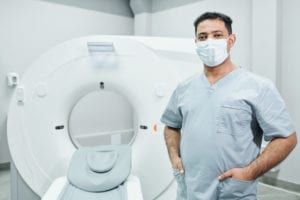
Magnetic resonance imaging (MRI) is one of the most powerful medical imaging tools ever invented, and it has revolutionized how radiology is performed, as it allows for the acquisition of high-resolution images without the need for ionizing radiation.
With the relentless push to achieve higher field strengths, MRI scans have become increasingly capable of revealing the most intricate details of and the subtlest abnormalities in the various organs and structures in the body. This has paved the way for the discovery of illnesses in their earliest stages and for the significant improvement of treatment outcomes.
Discussed below are a number of hidden health problems that MRI scans can reveal and where to find a state-of-the-art MRI facility in Bronx, New York.
Conditions of the Central Nervous System
MRI scanners—especially those that use ultrapowerful magnetic fields (7T to 10.5T MRI scanners)—are capable of picking up details of the brain and spine even as minute as one millimeter and detecting the slightest indications of potentially life-threatening conditions, such as:
- Stroke- MRIs are used for diagnosing brain aneurysm and monitoring weak areas of the arteries that may lead to stroke.
- Brain damage – If you suffered a stroke or a head injury and experiencing seizures, weakness, severe headaches, and blurry vision, your doctor will order MRI to determine whether these symptoms indicate that you sustained any damage to your brain.
- Cysts and tumors – MRI scanners create high-resolution images of the soft tissues in the body, which can be otherwise difficult to see using other types of medical imaging tests. MRIs are used both to differentiate brain cysts from tumors and to ascertain whether a tumor is or isn’t cancer.
- Cerebral shunt malfunction- For pediatric patients suffering from a potentially fatal fluid buildup in their brain cavities (hydrocephalus), MRI scans are used to check for any obstructions that can cause their shunt systems to malfunction. A shunt is a hollow tube placed in the brain to drain excess fluid and mitigate the symptoms of hydrocephalus.
Other conditions of the central nervous system that MRI scanners can detect include:
- Degenerated or herniated spinal discs
- Hard-to-see abnormalities in the nerve tissue within the spinal cord
- Infectious or autoimmune diseases, such as encephalopathy or encephalitis
- Multiple sclerosis
- Problems in the pituitary gland and brainstem
- Structural and developmental abnormalities
Other (Hidden) Problems Detected by MRI
MRIs have also been widely used by orthopedic specialists for examining the joints and bones to help:
- Assess complex fractures
- Check the marrow for signs of leukemia and other diseases
- Detect the earliest manifestations of bone cancer
- Diagnose developmental joint abnormalities in children
- Diagnose sports-related injuries
- Identify the presence of an otherwise undetected joint tumor or infection
In cardiology, doctors often use MRIs in conjunction with echocardiography (heart ultrasound), computed tomography, and catheter angiography to obtain information both for diagnostic and treatment purposes.
Cardiac MRI can help doctors diagnose or investigate a wide range of cardiovascular conditions, which include:
- Cardiac tumors
- Coronary artery disease (buildup of plaque in the walls of the arteries)
- Heart failure
- Congenital heart conditions
- Causes of arrhythmia (abnormal heart rhythm)
- Cardiac inflammation or infection
MRI Facility in Bronx, NY
Here at Starling Diagnostics, we use 3T MRI scanners, which yield extremely clear, detailed images in significantly less time—two to three times faster than traditional MRI scanners. This is extremely beneficial to patients in pressing medical situations whose hope for a prompt, accurate diagnosis and treatment rely on image quality and efficiency.To arrange an MRI appointment or to learn more about our diagnostic services, please call our office at (718) 319-1610. Alternatively, you may fill out this appointment request form.
